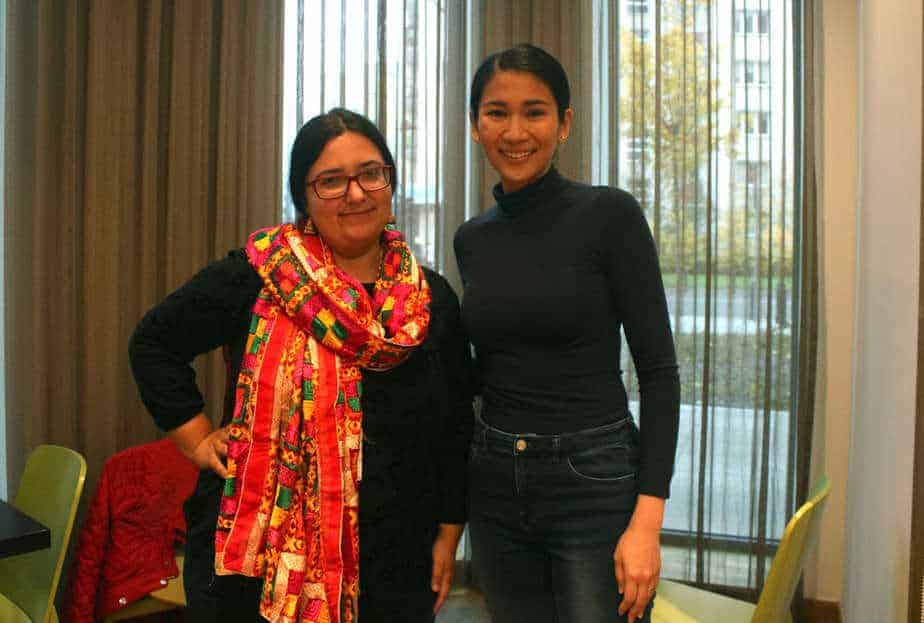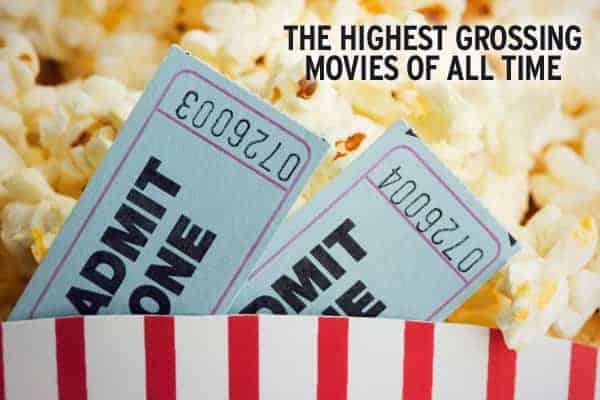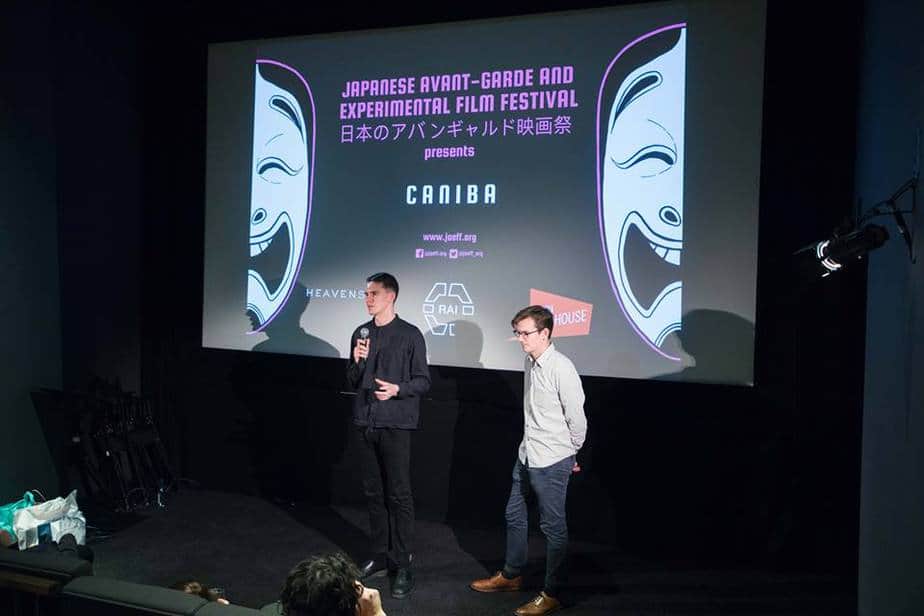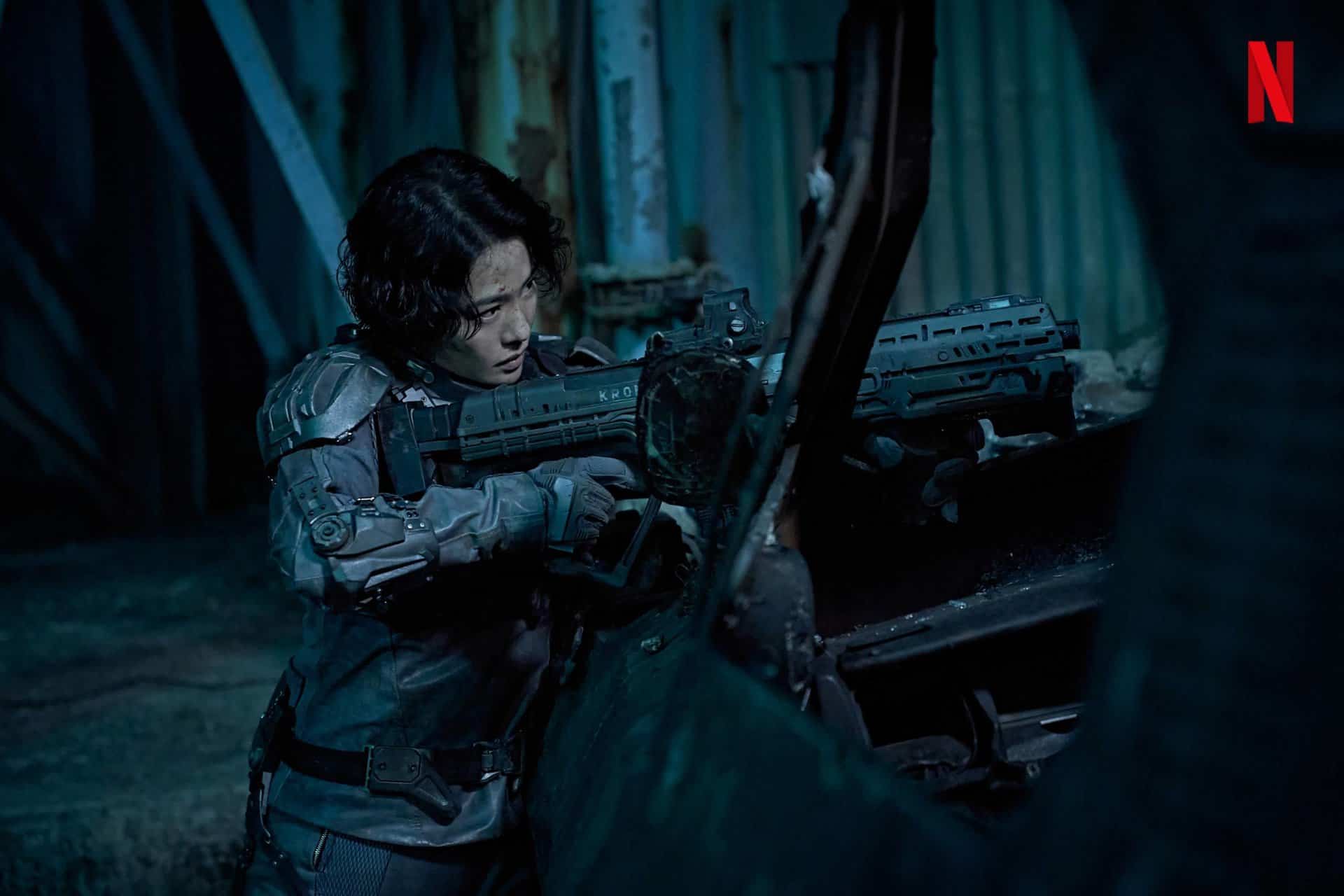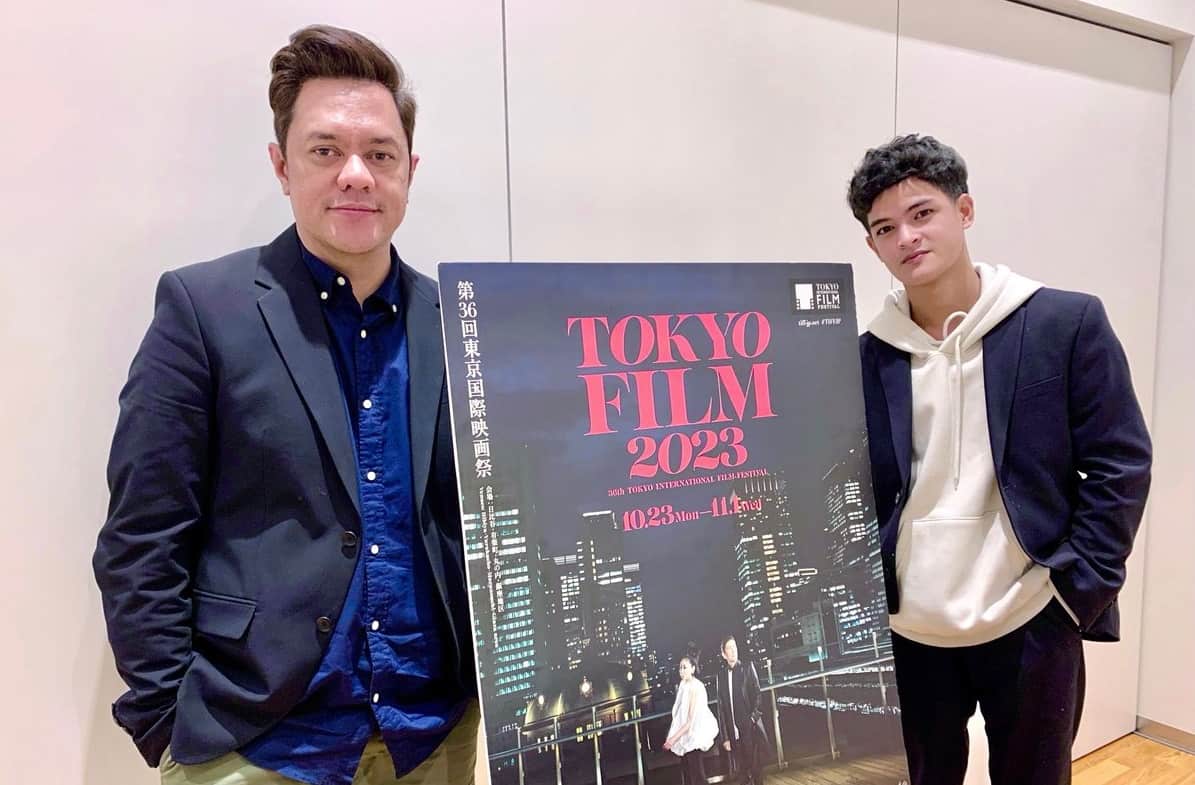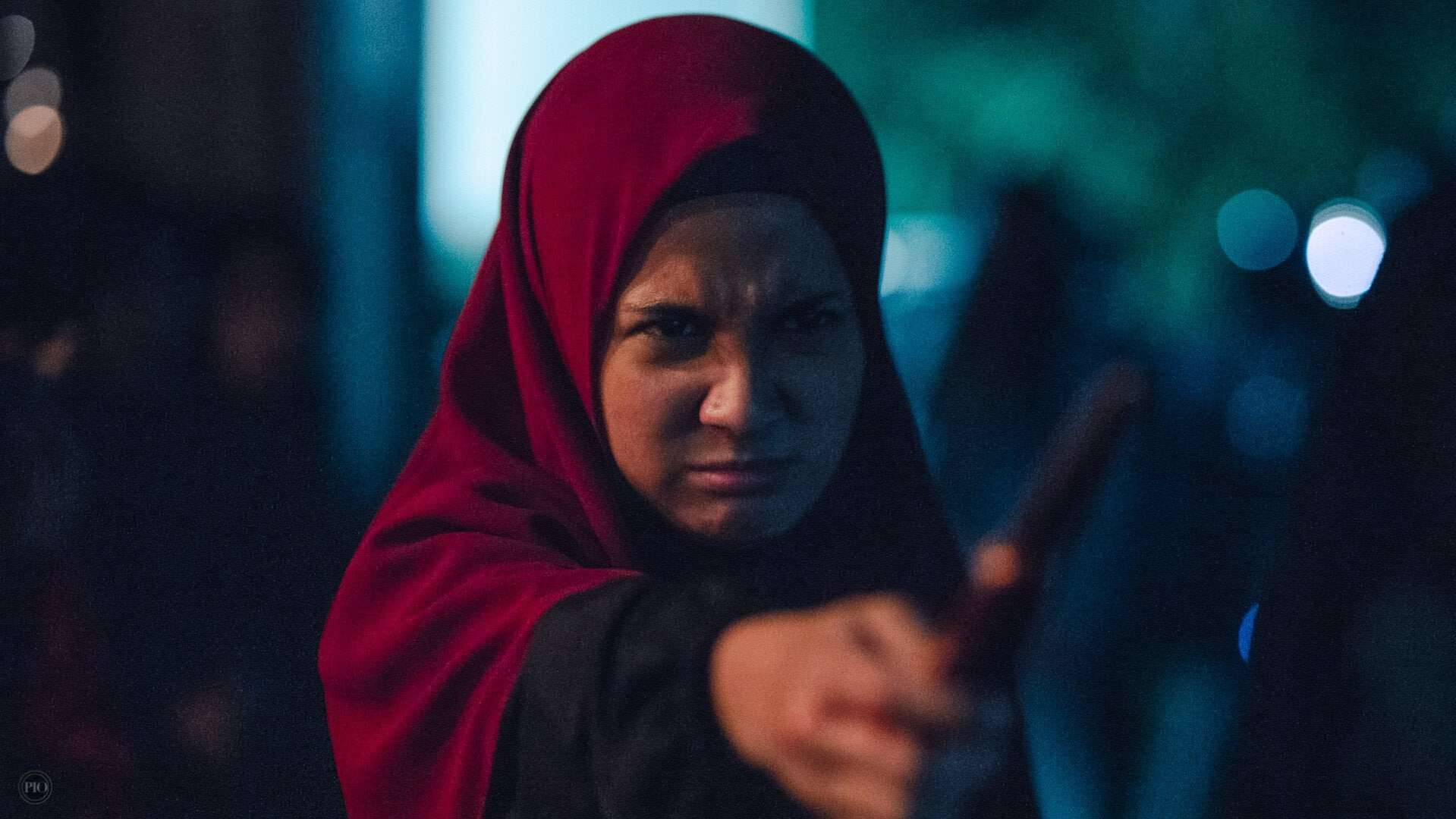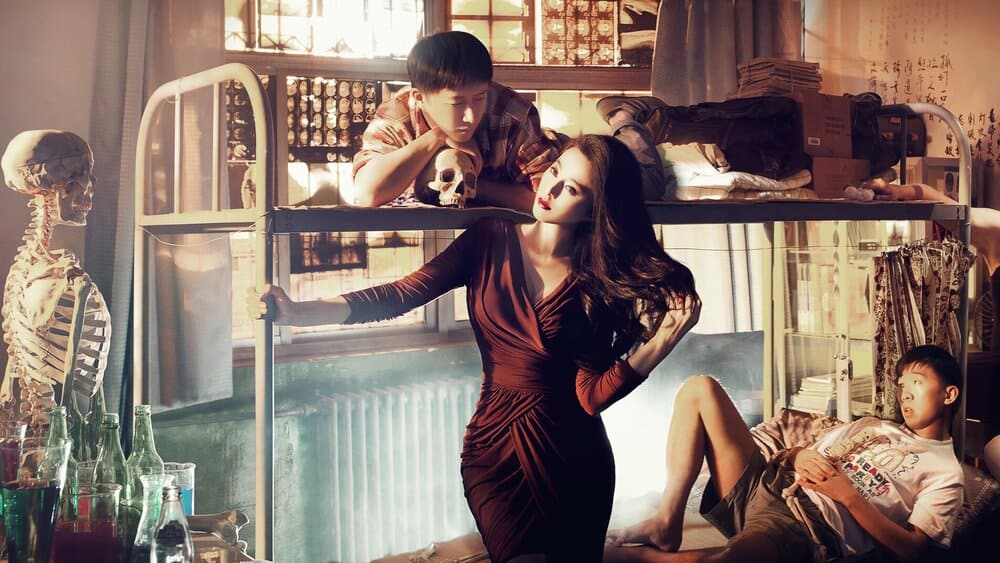Crisel Consunji was born and raised in the Philipines, and has been living in Hong Kong for over a decade. She is a vocalist and an actress with numerous stage experiences. Having received her MA in Political Science, she engages in multiple community projects as a passionate activist who believes in the importance of empowering people. Crisel co-founded the Baumhaus Family Centres to educate children through arts.
She made her feature debut with the independent Hong Kong movie “Still Human”, telling the story of Evelyn, a migrant domestic help of Filipino descent (it is estimated that domestic workers represent even 10% of the city's working population). On the occasion of “Still Human” screening during the Five Flavours Asian Film Festival, we talk with her about the migrant female workers, the power of empowerment, her earliest stage experiences, using arts in education and her look at the recent events in Hong Kong.

You are the first Filipino to receive Best New Performer and to be nominated as Best Actress at Hong Kong Film Awards. What is the feeling?
I am honored as a performer and as an actress that my work has been recognized. But more than that, I am filled with pride. I feel that with this film we're moving forward in many ways. I am delighted about the diversity in the representation. We, as Filipinos, are not only given a voice but also a chance to be recognized as a part of Hong Kong society.
Why you decided to join the crew of “Still Human”?
I took on this project because of the message it represents. It is telling the story of these brave migrant women, actually not only of Filipinos, but also of many other migrants. And for them is so crucial to be recognized and heard. But more than that, the movie gives a fair representation, what mattered to me the most when I read the script. The director Oliver Siu Kuen Chan did a lot of research. If the script was written in a misrepresenting way, then it would be a step backwards. But with this kind of voice, it gives a tool for progress to society.
Your character, Evelyn, is a strong woman, aware of her abilities. It gives dignity to the image of domestic helpers, which are often perceived as helpless victims.
This is exactly what drew me to the script. During the past 12 years of my life in Hong Kong, I've been cooperating with plenty of organizations. When I first came, I had these specific expectations. I'm not proud to say that I thought I would be helping oppressed women, but it turned out that many of them didn't need help and weren't oppressed. Of course, they welcome the chance to be heard. They need to find their voice and a platform to share their stories. But a lot of them are strong and empowered. It's not the vision that people have in mind, imagining them somewhere down in the dumps. It happens that their condition is not ideal and many of these women come across different hardships. Though in spite of it, they stay strong and we shouldn't let circumstances define them. So what we can do is to give them proper platform and tools, because they already have the strength inside.
Are there any NGOs both in Hong Kong and the Philippines, which provide reasonable support for the migrant domestic helpers?
Yes, and from my personal experience, the movement has evolved over the past decade. There are many more organizations supporting and empowering migrant workers, so they have more opportunities to build upon. One of these organizations is Bayanihan, which in Filipino means “camaraderie” and “coming together”, run by Filipinos. It's a space where women can get together to have development courses. There is the program EmpowerU held at the University of Hong Kong under Dr. Michael Manio. Its purpose is to provide migrant workers with opportunities to learn. They run courses taught by experts in many fields, whether it is first aid or elderly care, photography and many other interest classes. There's also Enrich Hong Kong, which I was a volunteer. It actually was one of my starting experiences. Enrich Hong Kong provides financial literacy and education, helping to understand how to plan strategies back home with the money you earned. Uplifters provide similar training. There're Pathfinders working with migrant women, who get pregnant and have nowhere to go. There are many shelters like the Bethune House. And then there are also organizations providing free legal services. The list goes on, so you can imagine it is a very vibrant time for these empowerment movements.
I was wondering, did you have any influence over the script because as a Filipino you have some insight into the situation? And I am also curious because of your involvement in arts – if it was your idea that Evelyn wants to become a photographer?
Good question. Believe it or not, I had very little input on the script, because Oliver Siu Kuen Chan did an amazing job with her research and she had the empathy to listen to people. So actually, there was not a lot from my part. I just gave some feedback from the Filipino perspective. Like sharing the context that women in the Philippines cannot divorce legally and the significance of that fact. Also, I explained some language issues.

What, if we can generalize, does the Filipino society think of women who leave to work abroad?
It's very varied. On the one hand, we celebrate them as modern day heroes. We know they keep our economy afloat. We know we're losing our mothers, wives, sisters, and daughters. But I think what a lot of Filipinos might not understand is how the migrant workers really live and what are the challenges they face day after day. For many people, they are a mere statistic, and I was also guilty of this kind of mentality. I have finished my first master's degree in political science. We were looking at overseas migrant workers as figures, discussing the numbers and charts. In Hong Kong, there are at least 240,000 female migrant workers and yet we treat their stories as one, while there are 240,000 individuals stories, and I think that's a missing link. Sometimes, these women try their best to show their families that they're doing well. And even if they face hardships, they will smile for the camera while video talking with their close ones, saying: “Everything is okay. Don't worry about me.” I remember one person, who thanked us after a screening in the Philippines. His mother attempted to work abroad, but came back home only after a few months. He said that he had never tried to think what she could have gone through and watching “Still Human” made him reflect upon that.
So this perception may change…
Now we're starting to truly understand what's going on. Also, the female migrant workers begin to learn how to assert themselves. There are some cases where the families treat them as cash cows, assuming that if this person is abroad, everybody can ask her for help. I've come across many stories like that. During Enrich Hong Kong's workshops for financial literacy, the facilitators are making the women aware: “You can say no, if somebody is asking you for money. Take care of yourself”. So I think that's also a new narrative coming.
What is the common thinking of the fact that migrant workers leave their families behind? For example, here in Poland, we have this narrative about empowerment, and that women should pursue their careers. But at the same time, people criticize mothers, who, in their opinion, come back to work too soon after maternity leave. So as you can see, there are two contradictory communicates.
And you don't win, right? If you leave your child, it's abandonment and you are a bad mother. If you don't, they say you're not responsible for your family. Thousands of overseas Filipino Workers leave their own children to take care of somebody else's children. When they return home, they are like strangers, because their kids didn't grow up with them. It is difficult to guide somebody if you don't have this long time-built connection. And that is the pain, especially that, as I mentioned earlier, a lot of children don't actually realize what their mothers are going through.
That is devastating…
I can recall one story, but in fact it's a story of many. The lady went to work abroad in the Middle East. If you think Hong Kong is already a tough place to deal with, there are many more challenges waiting for migrant workers there. There are cases when domestic helpers get their passports taken away and are practically forced to work seven days a week, not allowed to go out and they don't get their contracted salary. That lady relocated to Hong Kong to be closer to her family. She was explaining that her Middle East employer was actually decent and treated her well. And then she added, “Yeah, I know they didn't pay me my full salary, but I'm lucky, they were nice and kind.” No, they can't be nice people if they're doing something illegal. And a lot of women face that. The children of this lady, who had “the nice employer”, went to the university owing to her work, but they assume money comes easily. They call her constantly asking for it. And it's sad for any mother when her children feel that way.
For your character in “Still Human” art, photography, is something allowing her to change her life. I know that you work with kids through the project you co-founded, the Baumhaus Family Centre. Could you tell us something more about your educational work and art as a tool of empowerment?
I believe in embracing the arts at a young age. Not just arts' education, like teaching children ballet or singing, but arts in education, meaning using it as a tool enabling children to express themselves. It is very valuable for people nowadays to understand how they're feeling and give them a chance to express those feelings in a way natural to them, which gives them confidence and ability to listen to others. Art brings all that. You can't act in a movie or a play without being authentic and honest with yourself, you cannot give a genuine interpretation of music if you don't know how to empathize with others. Self-discovering that inner voice, that empathy, that discipline, and that dedication is a big value of art. In Asia, there's a tendency to think of arts as a tick box. “Oh, now I am a violinist, or now I dance and I ‘am getting this certificate,” but art is a way of life. I worked in a professional theatre company, learning about the beauty of art, but also learning the real world, even the tough things, like dealing with criticism, accepting that you didn't get the part in an audition. These are valuable skills, which I would like to bring to children in an age-appropriate way. Actually, I am pursuing my second master's degree in education because I believe art allows to understand the way children think, the way children feel, and the way children learn, because art is a way through which they learn. They naturally know how to move, how to sing. There is a saying “you sing before you talk.”

…meaning…
You see, you babble, you vocalize, you dance before you walk. Children don't understand the difference between speaking and singing until they're like three or four. So for them, everything is a melody. When you are an artist, you need to understand how to connect with children. Because children learn differently. They aren't like adults. You can't come to the class, saying “Okay, do your drills now.” With children, you need to take their age into consideration. You need to think about how they are feeling, how can you address their needs, how can you help them become confident and how can you help them to love the drill.
It's very fascinating. I also believe in teaching children through art. I work in the publishing house, which is famous for its illustrated books for children. So in a way we also educate through art.
I think my ability to imagine and to create comes from that artistic experiences, of being allowed to express my voice singing or listening to stories read to me. An empathy gained through arts allows you to put yourself in other people's shoes, and therefore you see the world in more openly.
Your parents were supportive?
Yes, yes. I think I was very lucky. When I expressed my interest in joining a musical theatre, my parents just said: “You should do it”. Of course, there were conditions like “you need to keep your grades high”. I remember that every time I had a performance, my grades were topping because I needed to show I am doing my best and I can cope with my duties both at my school and the theatre. Afterward my grades were getting lower because I no longer had a point to prove. [laughter]
I've read that you had your first professional acting experience at the age of ten…
I did. And it was by accident. I think some of the best things in life happen by accident. I didn't go to any drama school. In a newspaper, I found a call for open auditions for a musical called “Evita”. They needed just a dozen children to go into the stage and sing a chorus. Luckily I was approved. At that time, Theatre Company Repertory Philippines was developing under the pioneering vision of Ms. Joy Virata. They started investing more in bringing theatre to young audiences, a project of professional theatre that addresses children's needs. So they would stage fairy tales and at some point they needed kids, not adult actors, to do the roles. I was in the chorus for another show, when they picked me among some other children to train. I got this exciting opportunity to learn from scratch, and they were so patient with me. I didn't know anything, how to stand, how to speak loud and clear, how to articulate, how to look at the audience, and how to look at my stage partner. I know this seems very simple, but for a child, it was very difficult.
For me, it wouldn't be simple (laughter). What about your vocal training?
My theatre company advised my mother she shouldn't force anything until I am ready, if she wants me to unleash my full potential. When the time came, I was 18 or 19 back then, the training with my voice teacher started, and he is still there, teaching me. So it's been 16 years. It is a constant journey because our bodies change, and new experiences deepen our perspective. Every time any milestone happens, he is always guiding me to the next phase. Recently he was telling me: “Listen to your voice now. It's deeper”. “Because,” he explained, “you're older”. [laughter] “Don't sing the way you did 10 years ago. You are not a little princess anymore.” So it's a constant rediscovering of your voice, and your message. I'm very lucky that I've had this kind of teacher who is not only teaching me the needed skills, but also is mentoring me.
So although “Still Human” was your feature debut, the acting experience wasn't something new for you?
Yes and no, because it is so different with a film. Honestly, I felt very incompetent when I started. And I still do because I've only had this one experience. On the stage, you are trying to have a bigger presence. Everywhere you go, you need to fill up that space. And in front of the camera, you have to pull it back. I remember situations when I did the scene, and Olivier said “It's too much.” So I adjusted, and again she said, “It's too much, it looks like overacting on the camera.” Then finally she approved: “Okay, now that's good,” but for me that was: “Well, I'm not moving anymore.” [laughter]. So the director taught me a lot. I think the core is listening, staying focused, and being honest. These are the things any artist would imbibe. Though I think it was easier for me to adapt because of my background.

From what you say the director was very supportive…
Oh yes, she was. And everybody in the cast, they were so patient with me, including Anthony Wong. If I were in their shoes, I would probably complain about me. [laughter]
I've heard that initially, you didn't know who Anthony Wong was…
I think it's a bit embarrassing. [laughter] However, I didn't grow up in Hong Kong, so I didn't know who he was until I noticed that everybody follows him around. Then I realized “Oh, he must be really famous.” Though because I came from the theatre background, I am used to showing respect no matter how famous somebody is. I am also used to that the more famous an artist is, and the more experienced, the more professional and humble he or she is. It proved the same on the “Still Human” set. Working with a true professional like Anthony Wong was dealing with somebody for whom fame is not an issue. When you're on the set with him, you're colleagues, you're equals, and you work together to do something good. So I think I respect him a lot for that.
We talked a lot about your stage experiences. Who are your favorite playwrights?
Well, I like the classics. And I obviously love musical theater. My favorites… I know they probably need a bit of an update to our modern understanding of women and various issues, but I love the works of Rogers, Hammerstein, and Stephen Sondheim. From outside a musical theatre, my favorite is “Cyrano de Bergerac” by Edmond Rostand. I think it's timeless in terms of values. Of course, I love new plays too, which are fresh and current, but the old works have this nostalgic feeling.
Me either, I have a very classical taste in theatre, as my favorite playwright is Shakespeare.
That's the beauty of the classics, you can go back to it every time and you can always re-imagine and re-envision it with different perspectives depending on the moment you are in your life.
It's interesting that you can still restage it in a modern way.
Which means that people's spirit is similar, irrespective of times.
Coming back to “Still Human”. The movie shows the importance of dreaming. Why people should dream?
I think the world needs more people who believe in themselves and who are empathetic to others. When you dream, you pursue humanity, you become closer to discovering your purpose in life. When you can do that, and when you achieve something for yourself, you have an opportunity then to reach out and be of service to others. I think it's a cycle, first helping the person to be self-fulfilled, but through the fulfillment and joy to be able to empower people who need it. I think our purpose in life is to be here for each other. And by dreaming, we begin to have a broader experience, not only for ourselves but also for others.
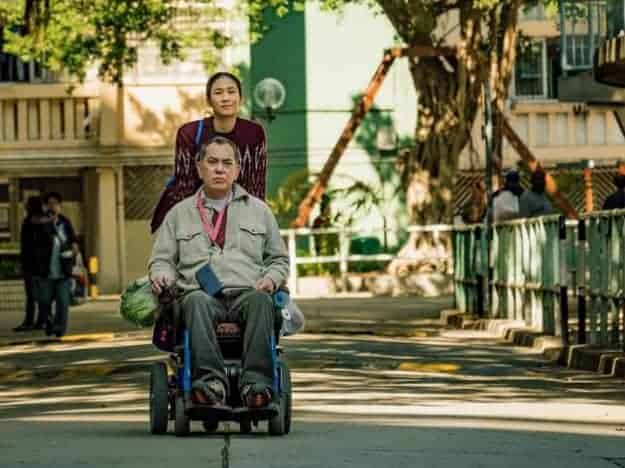
What do you think about the relation between the characters? Do you think this kind of bond is likely or unlikely in real life?
I would say that in contrary to what people think, the situation like between the characters in “Still Human” happens more often than we can imagine. Nowadays, we witness so many changes around the world and I think that it compels us to reach out to people, and that's where we find strength. I do believe that individuals from very diverse backgrounds will always find a common thread of humanity if they are willing to listen. And I think the movie shows this. Some people asked me in Hong Kong during the post-screening discussions if it is a fairy tale, and that it seems too good to be true. I disagree that it's too good to be true because everybody empowers people differently. I have seen many employers and their migrant workers becoming good friends or sharing a bond like family members. These don't have to be big things, meaning you don't have to empower someone to win a photography contest. It can be empowering for the migrant worker to make a financial plan allowing her to go back home the soonest. It is a triumph and a dream come true, not a fairy tale, when you help people discover that they have talent. But again, this also refers to anybody in any part of the society, whether you're young or old, rich or poor. Nowadays, when we are experiencing so much chaos in the world, people start to analyze: “What can I do to understand another person.” And in all our fragility, we have the opportunity to perceive other people as equals. And I think that's what the film also represents, that we stay humans even in our darkest hours, right?
Definitely. You seem to have this strong faith in humanity.
I hope so. But the recent events in the world sometimes make me question it… On the other hand, we talked a lot about dreams. You have no choice but to be optimistic.
I have to ask you about what is happening back in Hong Kong. We know the events from the media, but we don't know much about how it looks from the perspective of citizens.
[When we talked, the Hong Kong protests took a dramatic turn, resulting in the siege of the Hong Kong Polytechnic University. ]
I'll make a disclaimer that I try not to give a political commentary because I don't want to add to the pain people are feeling.But we are all in pain, because we can't bear to see people fighting against each other. It is very difficult for us to bear. Although I am a foreigner, for all of us, the foreigners living in Hong Kong, it is our home. We are trying to make sense of what is going on because the situation has escalated rapidly. And we don't want to add fuel to the fire by saying one thing or another. What we hope is that no one dies. Everything is so out of balance. And from my part, I am concerned about how to support children and families from our school to go through that time. A lot of people like me won't be able to address the issues from a political standpoint, but we want to give support to the people who need it. It is very hard to handle watching the place you love and people who are supposed to be brothers and sisters, the countryman, hurting each other in this way.
Here we sympathize and understand, as we went through turbulent times as well. And it must be tough for you to be here, attending the festival, while all these things are happening.
I don't want to sound ungrateful because I really love it here, when I see how much effort and dedication this team has, and the audience that you bring in, how civic-minded and conscious they are about the world and other cultures. I appreciate that a lot. But at the same time, there is a part of me that wants to be back in Hong Kong. Friends are telling me: “Enjoy your time there”. Though I cannot enjoy, being aware that people I know are suffering and they are worried about what future brings. It is a responsibility. I'd rather be home stressed about the things happening around instead of seeing it from afar feeling helpless.
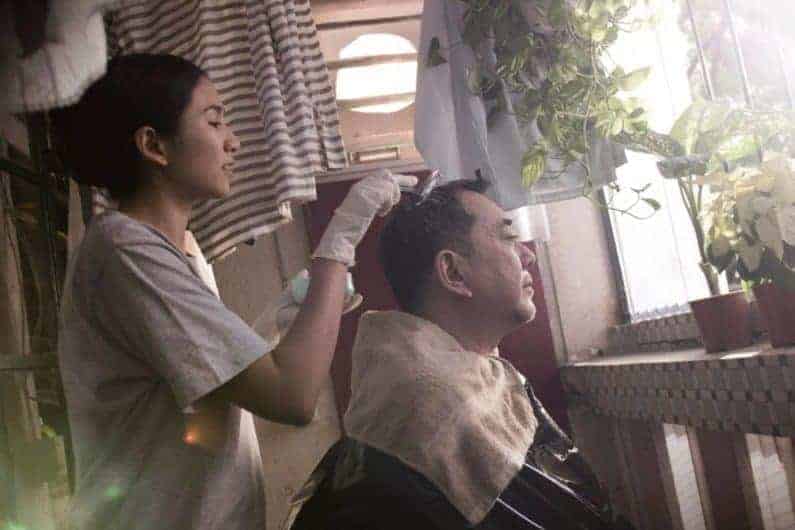
It's a cliché thing to say, but we hope that everything will turn out good.
We have no choice but to go through it.
Ok, so to not wrap up with this tough subject. Are you planning to engage in another acting project?
I'd love to explore more. It is a very strange moment for me, because I find myself in the middle of everything, in terms for example where to go next in life. I would love to continue immersing in arts, to perform more again, whether on a stage or in films. I've been expressing myself in arts for years as a teacher, and now I want to do something for myself, but in a way to share it with others. I hope the opportunity would come. I have a lot I believe in and I'd love to be a part of the voices that transform the world. I think films are a great tool to do that. Not only as an art form, and a product, but also something giving the opportunity to represent different people's stories. I want to be able to give that voice to people.


